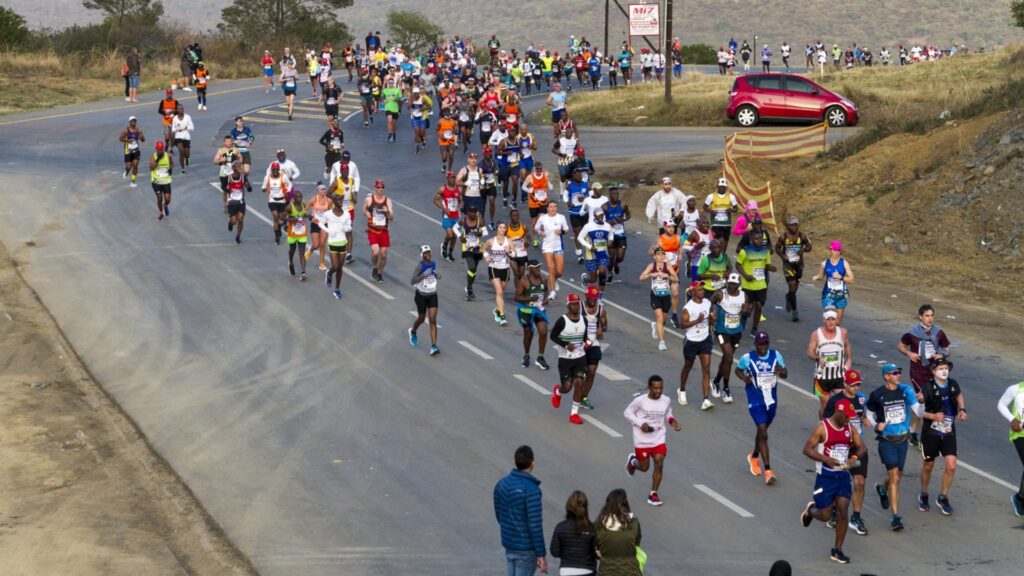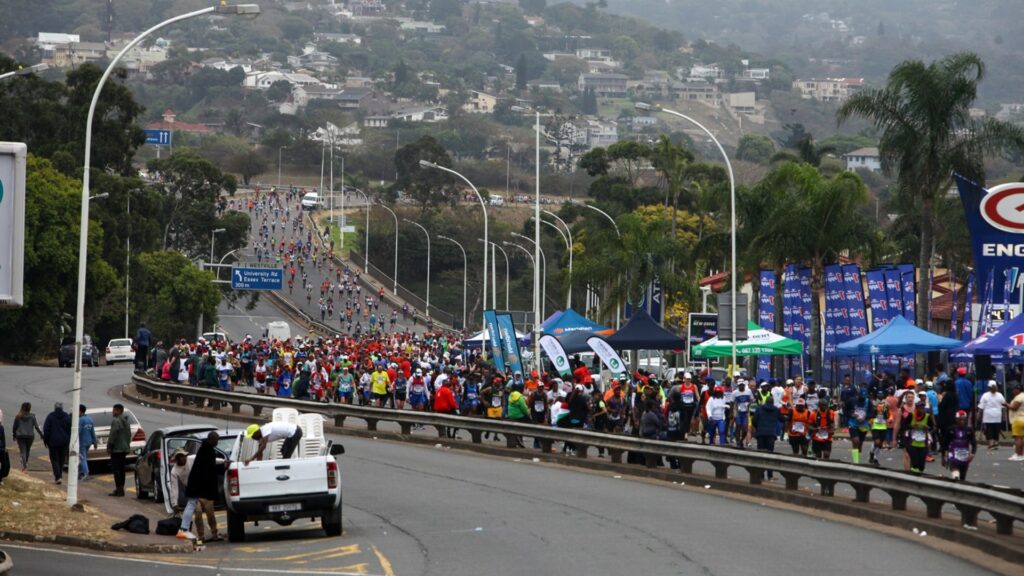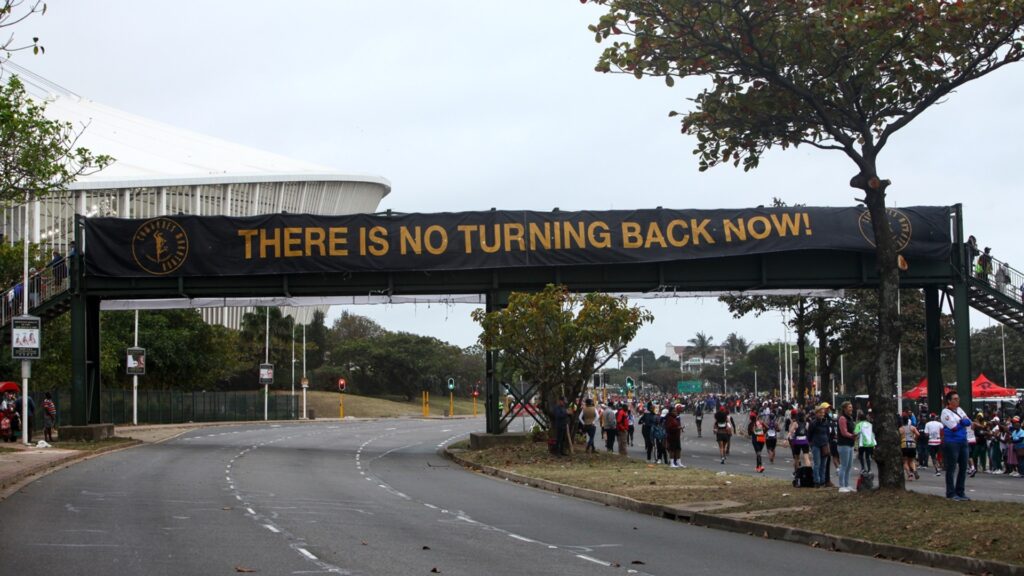Running the Comrades Marathon is an enormous challenge, and not every runner achieves their goal on the first attempt. Understanding what went wrong and planning for the future is crucial. In a recent episode of “RUN with Coach Parry,” hosts Brad and Lindsey Parry spoke with Michael do Carmo, a runner who faced difficulties during the 2019 Comrades Marathon. Together, they dissected his experience to devise a strategy for future success.

Reflecting on Your Running Background
Michael, based in Pretoria, is a self-described computer geek who transitioned from a sedentary lifestyle to running several years ago. His initial foray into running began with a friend’s challenge, which led him from couch to 10K, but not without early setbacks, including injuries from overtraining. Over the past six years, Michael has steadily increased his mileage and pace, although his journey has not been without interruptions due to injuries. Reflecting on your journey and understanding your running background is the first step in addressing what went wrong.
Pre-Race Preparation and Recognizing Challenges
Leading up to the Comrades Marathon, Michael followed the finishers program diligently. However, two weeks before the race, he developed a niggle in his soleus calf muscles, prompting him to taper more than planned and rest entirely during the last week. Despite these issues, he started the race pain-free, though he did feel some discomfort in his right leg after a few kilometers. Recognizing and addressing pre-race issues is essential in preparing for future attempts.
Analyzing Race Day Experience
On race day, Michael managed to maintain a good pace until the halfway point. However, he struggled significantly in the section to Camperdown, eventually failing to reach Umlaas Road. He experienced a general lack of strength, even on flat sections, where he found it difficult to maintain his pace. His nutrition strategy, which he admitted had been altered slightly from previous races, may also have contributed to his difficulties. Analyzing your race day experience can provide insights into where adjustments need to be made.

Setting Realistic Goals and Training Adjustments
Coach Lindsey Parry highlighted that Michael’s training regime and shorter distance times indicated he was capable of achieving a sub-11-hour Comrades finish. Michael’s personal bests (PBs) for 5K, 10K, and half-marathon distances suggested that his goal was within reach.
However, there was a noticeable trend where his performance declined over longer distances. Despite these discrepancies, Coach Parry assured Michael that a sub-11-hour Comrades finish was realistic. Setting realistic goals and making necessary training adjustments are crucial steps in preparing for your next attempt.
Strength and Conditioning
To address Michael’s lack of strength and endurance during the latter stages of the Comrades, Coach Parry suggested incorporating strength and conditioning into his routine. Starting with a beginner program and progressing to intermediate levels would help build the necessary muscle resilience. Incorporating strength and conditioning can significantly improve performance and prevent injuries.
Making sure you do the correct strength training is important. The good news is we’ve created a free strength training plan for runners that you can download by clicking here.
Importance of Nutrition and Recovery
Coach Parry emphasized the importance of consistent nutrition both in training and on race day. Maintaining a steady intake of fuel is crucial, especially during the latter stages of long races when it’s common to struggle with nutrition. Building a buffer by fueling well in the first half of the race can help manage energy levels in the later stages. Michael’s post-race recovery was also discussed. Despite feeling fatigued and requiring more sleep, Michael reported no significant pain or niggles. Proper nutrition and recovery are essential components of a successful training plan.
Strategic Race Planning
For the upcoming year, Coach Parry recommended Michael focus on shorter races to build speed and endurance before transitioning to marathon and ultra-distance training. Participating in two half-marathons before the end of the year would allow Michael to target a 1:50 time. Early next year, he should aim to run a marathon close to 4 hours. Achieving these milestones would provide a solid base for his Comrades training. Strategic race planning helps build confidence and improve performance over time.

Mental Preparation
Brad added that keeping the mind fresh is crucial. The desire for redemption can be intense, but it’s important not to focus exclusively on Comrades for the entire year. A balanced approach that includes varied training goals will help maintain motivation and prevent burnout. Mental preparation is as important as physical training in achieving long-term success.
Approaching the Comrades Marathon after a failed attempt requires a comprehensive strategy that includes reflecting on past experiences, setting realistic goals, incorporating strength training, maintaining proper nutrition, and strategic race planning. Michael’s journey to completing the Comrades Marathon is a testament to the resilience and dedication required for such an endeavor. By addressing his training, nutrition, and recovery strategies, and setting realistic interim goals, Michael can build a strong foundation for success.
For runners facing similar challenges, joining a supportive community like the Coach Parry Training Club can offer valuable resources, expert advice, and camaraderie to help achieve their running goals.



Comments are closed.